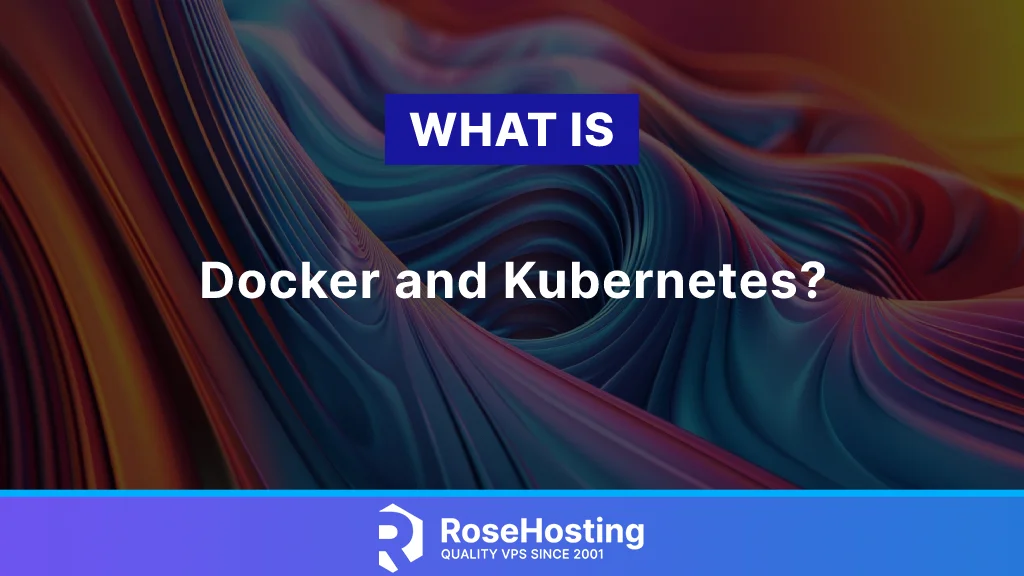
Containerization is a form of virtualization in which applications operate within isolated user spaces, referred to as containers, while utilizing a shared operating system (OS). One of the advantages of containerization is that containers are self-contained and can be seamlessly transferred to different computing environments. Many web developers containerize everything nowadays. In this article, we explain what is Docker and Kubernetes.
Table of Contents
What is Docker?
Solomon Hykes introduced Docker at the PyCon event in 2013, showcasing its capabilities in packaging and running applications within containers. These containers offer high isolation and security, enabling concurrent execution of multiple containers on a designated host. Since its official launch in 2014, Docker has gained significant popularity among developers worldwide.
Docker is a run-time engine running on your computer. It’s a daemon that is in charge of containers start, stop on that single computer. So, Docker is about managing work within a single machine. When people talk about ‘Docker’, they usually refer to an individual machine.
What is Kubernetes?
Kubernetes, a server cluster management platform, is an open-source solution for effectively managing a group of containers. Initially created by Google, it is currently overseen by the Cloud Native Computing Foundation (CNCF) and has gained significant popularity as a container management platform. By providing each application with its own resources, including CPU and file system, containers ensure that applications are less prone to downtime.
Kubernetes functions as a cluster management tool, consisting of a collection of daemons responsible for overseeing a group of machines. While each machine runs a single daemon (kubelet), the kubelet alone does not provide significant value. Rather, it is the collective group of kubelets (managed by Kubernetes controllers) that dictate decisions for the entire cluster. Therefore, Kubernetes focuses on managing tasks within a cluster of machines. When people talk about Kubernetes, they usually refer to a cluster of machines.
The Difference between Docker and Kubernetes
Although both Docker and Kubernetes are open-source container technologies, they function differently and fulfill unique roles in the distribution of containerized applications. Docker is employed by developers to generate and handle container images. Kubernetes is utilized for the management of multiple microservices at scale. Each microservice consists of multiple containers individually.
Docker serves as a framework for constructing and executing containers, whereas Kubernetes functions as an open-source system for managing containers on a larger scale. It is important to note that Docker and Kubernetes have distinct roles, with Docker primarily focused on container creation and Kubernetes specializing in container orchestration. Nonetheless, Docker also provides its own orchestration system known as Docker Swarm.
| Docker Swarm | Kubernetes | |
| Installation | Easy and Straightforward | Complicated |
| Scalability | No Scalability | Automatic |
| Monitoring | Only supports 3rd party | Builtin |
| Clustering | Hard | Easy |
| Load Balancing | Automatic | Manual |
Despite the differences, both Docker and Kubernetes offer simplicity, speed, security, efficiency, and flexibility when building applications.
When to Use Docker or Kubernetes
As described in the previous section about the difference between Docker and Kubernetes, Docker is only for building, shipping, and deploying containers. Kubernetes is used for container cluster management. It is more of an apples-to-apples comparison between Docker Swarm and Kubernetes. Docker has its own container orchestration tool for clustering and scheduling Docker containers called Docker Swarm.
When it comes to when to use Docker or Kubernetes, it depends on your applications and needs. If using Docker is enough, you won’t need to use Kubernetes. When scaling is important to you, then you should use Kubernetes instead. Please note that Docker offers Docker Swam as an alternative to Kubernetes.
Conclusion
Developing applications can be intricate, and ensuring everything functions properly can be even more challenging. However, Docker containers offer solutions to this problem by allowing developers to transport software easily.
This article thoroughly explores the concept of Docker, highlighting its distinctions from Kubernetes, its functionality, and its comparisons to other widely used systems. We can conclude that Docker runs on a single node while Kubernetes runs on clusters of nodes.
We hope this article has provided valuable insights into what is Docker and Kubernetes. If you liked this post please share it with your friends and leave a comment below.